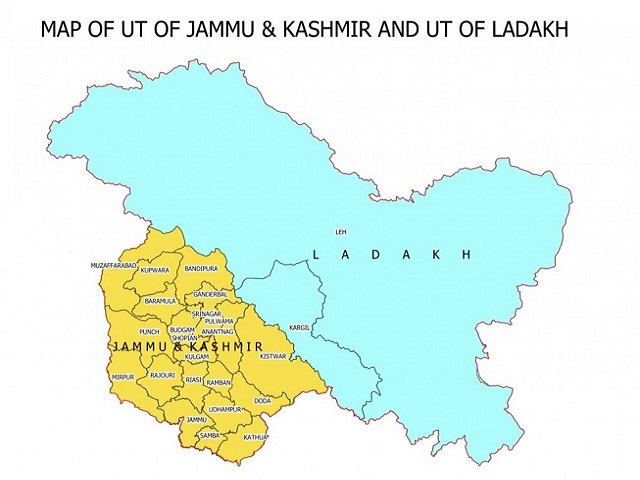Delimitation in Jammu and Kashmir | 22 Jun 2021
Why in News
Recently, the delimitation exercise has started in Jammu and Kashmir (J&K).
- The completion of the delimitation exercise will mark the political process in the Union Territory (UT) that has been under Centre’s rule since June 2018.
Key Points
- Delimitation:
- Delimitation is the act of fixing or redrawing the limits or boundaries of territorial constituencies (Assembly or Lok Sabha seat) in a country or a province having a legislative body, as per the Election Commission.
- The delimitation exercise is carried out by an independent high-powered panel known as the Delimitation Commission whose orders have the force of law and cannot be questioned by any court.
- The exercise has been carried out over the years to redefine the area of a constituency-based on its population size (based on the last Census).
- Aside from changing the limits of a constituency, the process may result in change in the number of seats in a state.
- This exercise also involves reservation of Assembly seats for Scheduled Castes (SCs) and Scheduled Tribes (STs) in accordance with the Constitution.
- Aim:
- The key aim is to have equal representation to equal segments of the population in order to ensure a fair division of geographical areas so that all political parties or candidates contesting elections have a level playing field in terms of a number of voters.
- Constitutional Basis for Delimitation:
- Under Article 82, the Parliament enacts a Delimitation Act after every Census.
- Under Article 170, States also get divided into territorial constituencies as per Delimitation Act after every Census.
- Once the Act is in force, the Union government sets up a Delimitation Commission.
- However, the first delimitation exercise was carried out by the President (with the help of the Election Commission) in 1950-51.
- The Delimitation Commission Act was enacted in 1952.
- Delimitation Commissions have been set up four times — 1952, 1963, 1973 and 2002 under the Acts of 1952, 1962, 1972 and 2002.
- There was no delimitation after the 1981 and 1991 Censuses.
- Delimitation Commission:
- The Delimitation Commission is appointed by the President of India and works in collaboration with the Election Commission of India.
- Composition:
- Retired Supreme Court judge
- Chief Election Commissioner
- Respective State Election Commissioners.
- Delimitation in Jammu and Kashmir:
- The delimitation exercise in J&K in the past has been slightly different from those in the rest of the country because of the region's special status.
- The delimitation of Lok Sabha seats was then governed by the Indian Constitution in J&K, but the delimitation of Assembly seats was governed separately by the Jammu and Kashmir Constitution and Jammu and Kashmir Representation of the People Act, 1957.
- However, Jammu and Kashmir lost its special status and was divided into two Union Territories (J&K and Ladakh) after the abrogation of its special status under Article 370, on 5th August, 2019.
- Following this, a special delimitation commission was constituted on 6th March, 2020 to carve out Assembly and Parliament seats in the UT.
- Issues with Delimitation:
- States that take little interest in population control could end up with a greater number of seats in Parliament. The southern states that promoted family planning faced the possibility of having their seats reduced.
- In 2002-08, Delimitation was done based on the 2001 census, but the total number of seats in the Assemblies and Parliament decided as per the 1971 Census was not changed.
- The Constitution has also capped the number of Lok Shaba & Rajya Sabha seats to a maximum of 550 & 250 respectively and increasing populations are being represented by a single representative.

